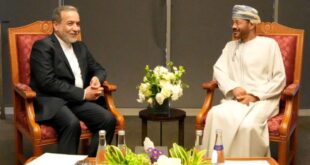TEHRAN — A poor showing by Mahmoud Ahmadinejad’s allies in last week’s elections will encourage Iran’s more moderate voices, which have been drowned out by the president since he swept to power last year.
But results of Friday’s twin votes for local councils and a clerical oversight body, which have no state policy making powers themselves, are unlikely to dampen his anti-Western rhetoric or result in big policy shifts, analysts say.
“The voice of the pragmatists will be more prominent,†said Baqer Moin, a London-based Iran expert and author.
Power in Iran ultimately lies not with the president but Supreme Leader Ayatollah Ali Khamenei, who analysts say is likely to be satisfied to see all of Iran’s main political factions receiving voter support but none dominating the scene.
Diplomats say Ahmadinejad has encouraged a hard line over Iran’s nuclear plans which the West says are to make bombs.
Tehran denies the charge.
More moderate politicians fret that he is pushing the Islamic republic into isolation but have been cowed into virtual silence after his shock presidential win in 2005 and by his ability to rally the crowds since then. That could now change.
“It will be a gradual change, in which the voice of pragmatists such as [Akbar Hashemi] Rafsanjani, would be reflected more,†said Moin.
Rafsanjani, a former president who backs better ties with the West, topped voting in Tehran for seats to the 86-member Assembly of Experts, a clerical body that supervises and can even dismiss the supreme leader.
After losing a bid to regain the presidency last year, the 72-year-old Rafsanjani won nearly double the votes of Ayatollah Mohammad Taqi Mesbah-Yazdi, seen as the president’s spiritual mentor who advocates isolation from the West.
Â
Turnout endorsement
Mesbah-Yazdi still retained his seat but several of his proteges lost. The assembly remains in the hands of conservative clerics who have tended to keep it out of day-to-day politics.
“They are not challenging [Khamenei]. They are not going to challenge him. He is safe with them,†said Nasser Hadian-Jazy, a political scientist at Tehran University.
“(Khamenei) is probably going to be more concerned about the level of participation than the composition of power,†he said.
A turnout above 60 percent, well up on past assembly and council votes, has been portrayed by officials as a strong endorsement of the country’s leaders.
Hadian-Jazy said Khamenei, 67, would probably welcome the mixed result of the councils vote. Although usually seen as a politically conservative figure, Khamenei has proved adept at balancing Iran’s competing factions, roughly divided between pro-reform liberals and a now fractured conservative camp.
Partial results for the main battleground, the 15 seats of Tehran City Council, gave Ahmadinejad’s backers, including his sister, just three seats but his moderate conservative rival, Tehran Mayor Mohammad Qalibaf, won eight. The two have been staunch opponents since Qalibaf lost in the presidential race.
Reformists, who seek political and social change, have four seats in a modest comeback after a series of electoral routs. Reformists see the win as a launchpad for the parliamentary vote in 2008 to challenge Ahmadinejad’s backers.
Counting continues but is not expected to radically change the composition.
Self-confidence
“Ahmadinejad’s list was very clear and visible. If people wanted to vote for Ahmadinejad… they could easily have found his list,†said one Western diplomat, adding it could undermine the president’s ability to “further foster his powerbaseâ€.
Reformists fret about Iran’s growing isolation but the president has also frustrated other conservatives by his go-it-alone strategy, shown when his backers issued their own electoral list ignoring mainstream conservatives.
“[Ahmadinejad], by this [election], can understand that for victory he needed to have a coalition with other [conservative] streams,†said conservative analyst Amir Mohebian.
But analysts question whether Ahmadinejad, who diplomats say oozes self-confidence when they meet him, will change tack on his policies. The president staged one of his regular provincial rallies on Tuesday, winning usual cheers of approval.Â
 Eurasia Press & News
Eurasia Press & News



